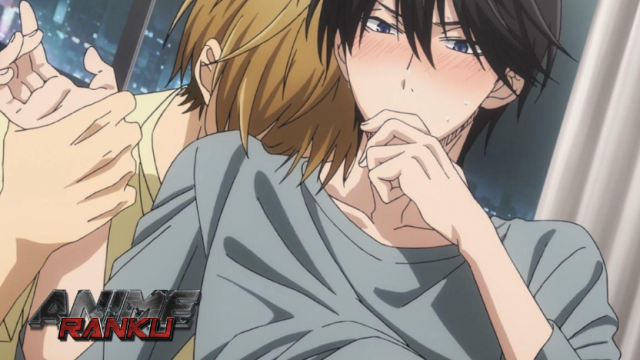Based on Hashigo Sakurabi's highly successful 2014 manga series, Dakaichi: I'm Being Harassed By The Sexiest Man Alive is a boys' love anime that, despite its wide popularity and ever-growing fandom, has received some criticism from both casual viewers and dedicated fans. While the series avoided most BL tropes, such as dramatic age gaps, unhealthy power dynamics, and distasteful nudity, it failed to address one of the most pressing concerns about queer representation in manga and anime.
The term "dubious consent," also known as "dubcon," refers to the ambiguity that surrounds a character's consent in a sexual interaction. Dakaichi, regrettably, is not an exception to this. The nuanced portrayal of an adult relationship existing outside of heteronormativity in the series had a lot of potentials, but some viewers were turned off by the coercive nature of Takato Saijyo and Junta Azumaya's early romance.
The Story of Takato and Junta Shows That Self-Discovery Can Begin at Any Age

Self-discovery can be a difficult and emotional journey. While most BL series are centered on teenagers, Dakaichi takes a different approach by exploring how adults can struggle with their own sexuality. Takato and Junta's budding romance is complicated by their ages, established careers, and various adult responsibilities. The characters' maturity adds depth to their experiences, and the series creates an opportunity for older viewers to relate to and feel connected with the characters on screen by depicting the challenges they both face as a result of their developing relationship.
The reception of the series, even to this day, is mixed, to say the least. For every fan that can't get enough of Dakaichi's atypical approach to the enemies-to-lovers trope, there is a viewer that can't get past the first episode due to the problematic aspects of Takato and Junta's relationship. It's worth noting that those who aren't fans often point to Junta's behavior as the source of their dislike for the series. Junta's indifference toward consent, obsessive tendencies and overwhelmingly stalker-like ways drive some audiences away, leaving Takato's wholesomeness and endearing quirks as the only saving grace for many first-time watchers.
Is the Junta's Impact on Audiences the Deciding Factor in Dakaichi's reception?

Viewers' perception of Junta often shapes their opinions of the series as a whole. As one of the two main protagonists, Junta holds the power to make or break the series. Despite the controversy surrounding Junta's actions, it's a reach to say that his character is totally irredeemable. For those who enjoyed the series enough to watch the film sequel, Dakaichi: I'm Being Harassed By the Sexiest Man of the Year - The Movie: Spain Arc, Junta's backstory and character development added dimension to his character, shifting the audience's feeling of annoyance to appreciation, or even admiration.
Although most of the criticisms aimed at Dakaichi are entirely reasonable and justified, the BL series is one that is far from the worst in its genre when it comes to the inclusion of controversial tropes. Many of the circumstances and plot points mirror those of other romance series, but by telling the story through the lens of two adult protagonists, Dakaichi presents the complexity of new-found romantic feelings and sexual attraction from a different angle. This perspective provides a different side to self-discovery -- one that is seldom explored in manga and anime, yet invaluable to queer representation for mature audiences.






